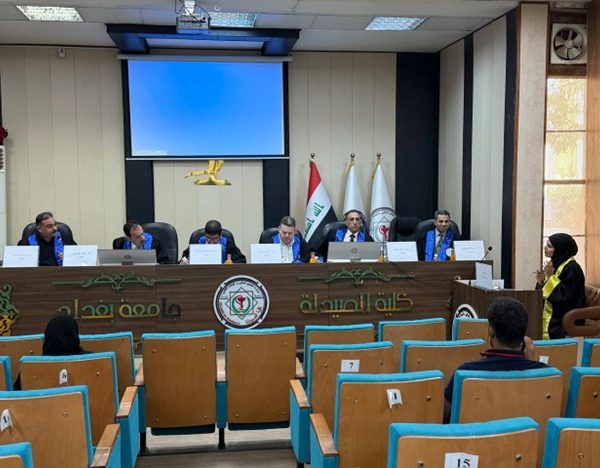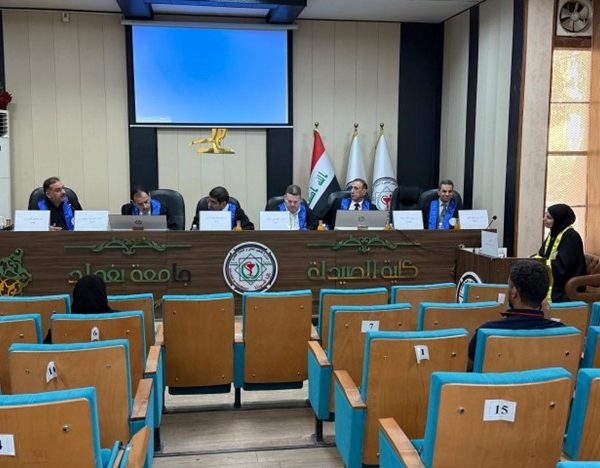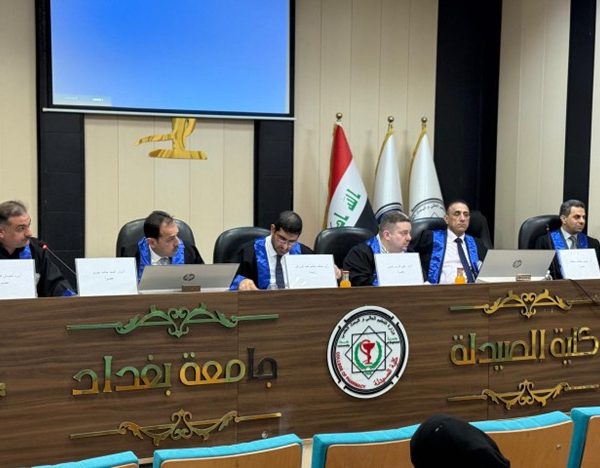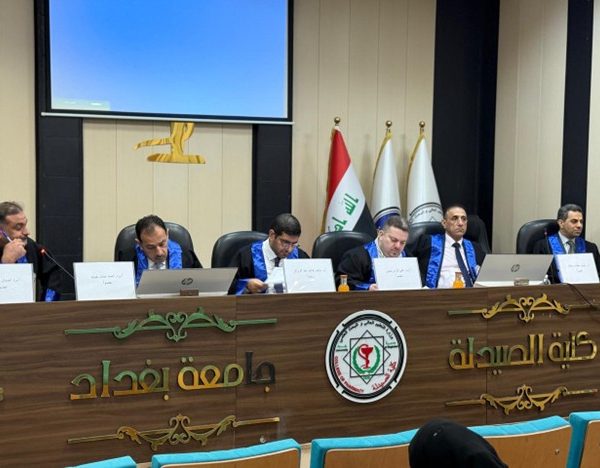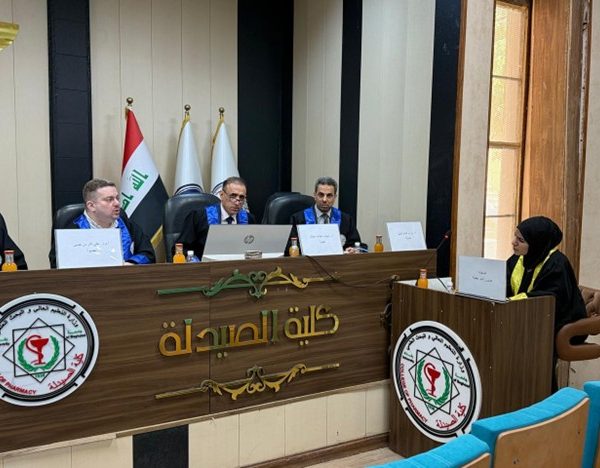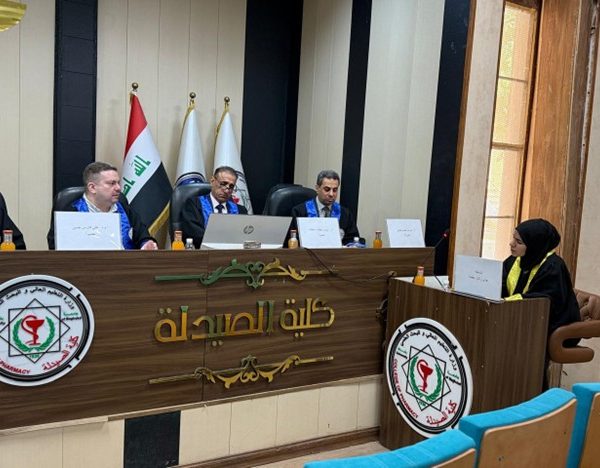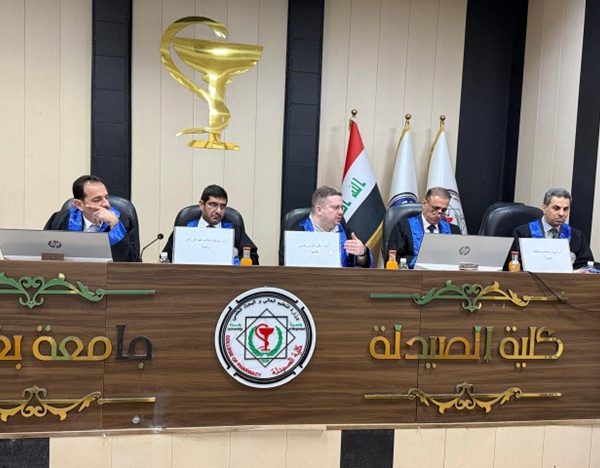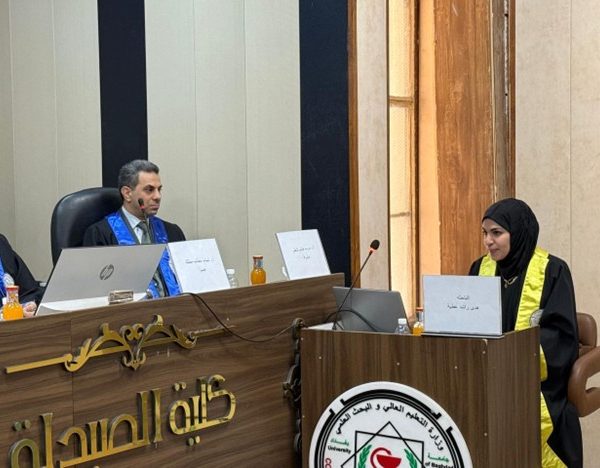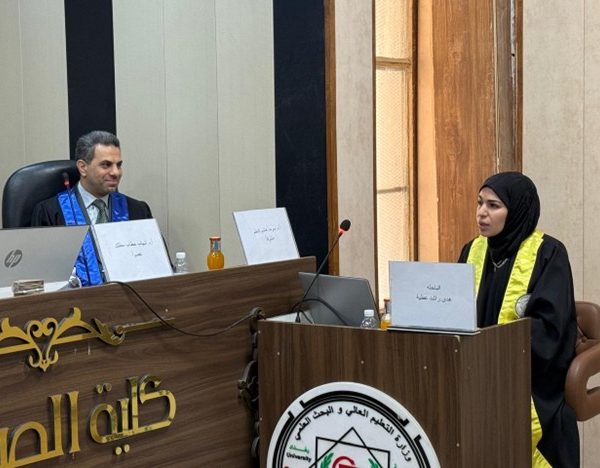The College of Pharmacy discussed the PhD dissertation entitled “Evaluation of the Effects of Carvone and Citronellol on Sepsis-Induced Acute Kidney Injury Following Cecal Ligation and Puncture in Male Mice” by the student Huda Rashid Atiyah and the supervisor Professor Dr. Sarmed Hashim Kathem at the Pharmacology and Toxicology Department.
The study aimed to evaluate the possible protective effects of Carvone and Citronellol in acute kidney injury induced by cecal ligation and puncture (CLP) in male mice.
The study included sixty male mice that were allocated into six groups of ten and treated as follows: Group I mice received 0.1 mL corn oil orally for 4 consecutive days, Group II mice received 0.1 mL corn oil orally for 4 consecutive days, and underwent CLP surgery on the 4th day, Group III mice received 50 mg/kg Citronellol orally for 4 consecutive days, and underwent CLP surgery on the 4th day, Group IV mice received 100 mg/kg Citronellol orally for 4 consecutive days, and underwent CLP surgery on the 4th day, Group V mice received 50 mg/kg Carvone orally for 4 consecutive days, and underwent CLP surgery on the 4th day, Group VI mice received 100 mg/kg Carvone orally for 4 consecutive days, and underwent CLP surgery on the 4th day. After 12 hours from the surgery, the experimental mice were euthanized, after which blood and kidney tissue samples were obtained for subsequent analyses.
The results showed that there was an improvement in the kidney tissues of the Carvone- and Citronellol-treated groups compared to those of the CLP group. Moreover, mice that were pretreated with Carvone or Citronellol exhibited a reduction in the levels of serum urea and serum creatinine, as well as downregulation in the gene expression of kidney injury molecule-1 (KIM-1) compared to the CLP group. In addition, pretreatment with Carvone or Citronellol attenuated CLP-induced inflammation by downregulating the gene expression of nuclear factor kappa-B (NF-κB), activator protein 1 (AP-1), and tumor necrosis factor-alpha (TNF-α) in renal tissues. Also, pretreating mice with either drug hindered CLP-mediated apoptosis, as it was evidenced by a reduction in the levels of caspase-3 and Bcl-2-associated X protein (BAX) in the renal tissues in comparison to the CLP group.
The study recommended that further research should be conducted utilizing other doses of Carvone and Citronellol to protect against acute kidney injury following cecal ligation and puncture. Also, Further in-depth investigations are needed to identify the yet unknown molecular mechanisms underlying Carvone and Citronellol renoprotective effects.



